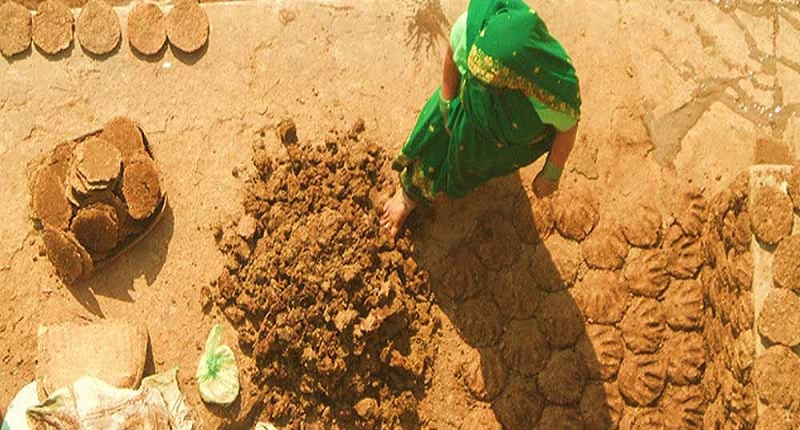
In February 2018, the Narendra Modi administration unveiled a new bovine-centric plan aiming at achieving India’s dual goals of increasing farmer income and providing sustainable energy. GOBAR-DHAN, a combination of the terms gobar (cow dung) and dhan (wealth), was introduced as an extension to India’s cleanliness drive, Swachh Bharat Mission, with the goal of keeping villages clean, creating a clear money stream for rural people, and generating electricity from animal waste.
The Galvanizing Organic Bio-Agro Resources Dhan (GOBAR-DHAN) project aims to increase farmers’ income by turning biodegradable waste into compressed biogas (CBG) and entice entrepreneurs to set up community-based CBG facilities in rural regions. Cows have always been revered by the Hindu people in India. Rural households have used sun-dried cow dung as a fuel to heat stoves for years, despite government efforts to phase it out with subsidized gas cylinders. However, four years after the launch, Indian farmers are now reaping the benefits of sticking with their age-old habit.
According to AFP, communities on the outskirts of the central Indian city of Indore are being rewarded handsomely for giving up their mounds of livestock excrement as part of a trial initiative to assist fulfill the city’s electricity demands. A 46-year-old farmer stated that he had sold over a dozen truckloads of fresh manure for $235 per shipment, which is more than the typical Indian agricultural household’s monthly income. ‘We have really excellent quality dung, and we maintain the dung clean to guarantee it receives the greatest price,’ Suresh Sisodia was quoted as saying by AFP. Cattle dung, along with household trash, is brought to the facility to be converted into combustible methane gas and an organic residue that may be utilized as fertilizer.
Even while the plant’s input capacity is currently restricted, officials are seeking to enhance the plant’s ability to process 500 tonnes of waste every day, including at least 25 tonnes of bovine dung — enough to power the city’s public transportation system and still have plenty left over. ‘Half will be used for Indore buses, while the other half will be supplied to industrial clients,’ said factory manager Nitesh Kumar Tripathi to AFP.

Post Your Comments